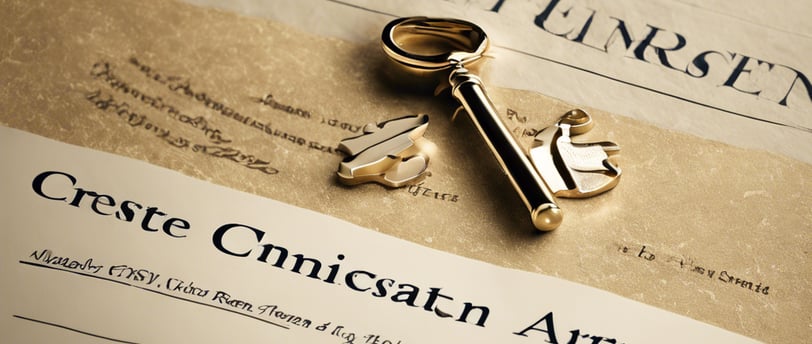Real Estate Transactions
If the trust or estate owns real estate, an EIN might be needed for property tax purposes, rental income, and any potential sales transactions.
Vikram Angurala JD LLM
11/10/20242 min read


Okay, let's delve into why an EIN can be essential for real estate transactions involving trusts and estates.
Think of the EIN like a property's Social Security number.
Just as you need your Social Security number for various transactions, a trust or estate often needs an EIN when dealing with real estate. This is because the IRS and local governments need a way to identify the owner of the property for tax purposes.
Here's why an EIN is important in real estate:
Property Taxes: Local governments use the EIN to assess and collect property taxes on real estate owned by trusts and estates.
Rental Income: If the property generates rental income, the EIN is used to report that income to the IRS and pay any associated taxes.
Sales Transactions: When it comes time to sell the property, the EIN is crucial for documenting the sale and ensuring proper tax reporting.
A common oversight:
You're right, many people overlook the importance of obtaining an EIN and setting up proper bookkeeping and accounting systems for trusts and estates. This can lead to complications, including:
Difficulty with transactions: It can be challenging to buy, sell, or manage real estate without an EIN.
Tax problems: Failure to report income and pay taxes can result in penalties and interest.
Confusion and disputes: Poor record-keeping can create confusion and disputes among beneficiaries.
Estate planning tool:
Addressing these issues during lifetime is a crucial aspect of estate planning. By obtaining an EIN, setting up accounting systems, and ensuring proper tax filings, you can:
Simplify estate administration: Make it easier for your loved ones to manage your assets after you're gone.
Minimize taxes: Ensure that all taxes are paid correctly and avoid potential penalties.
Prevent disputes: Clear records and proper accounting can help prevent disagreements among beneficiaries.
Think of a real-world example:
Imagine a trust that owns a vacation home. The trust needs an EIN to pay property taxes on the home and to report any rental income generated if the home is rented out. When the time comes to sell the home, the EIN will be needed to complete the sale and file the necessary tax documents.
Do you have any questions about how EINs are used in real estate transactions or why this is an important aspect of estate planning?
